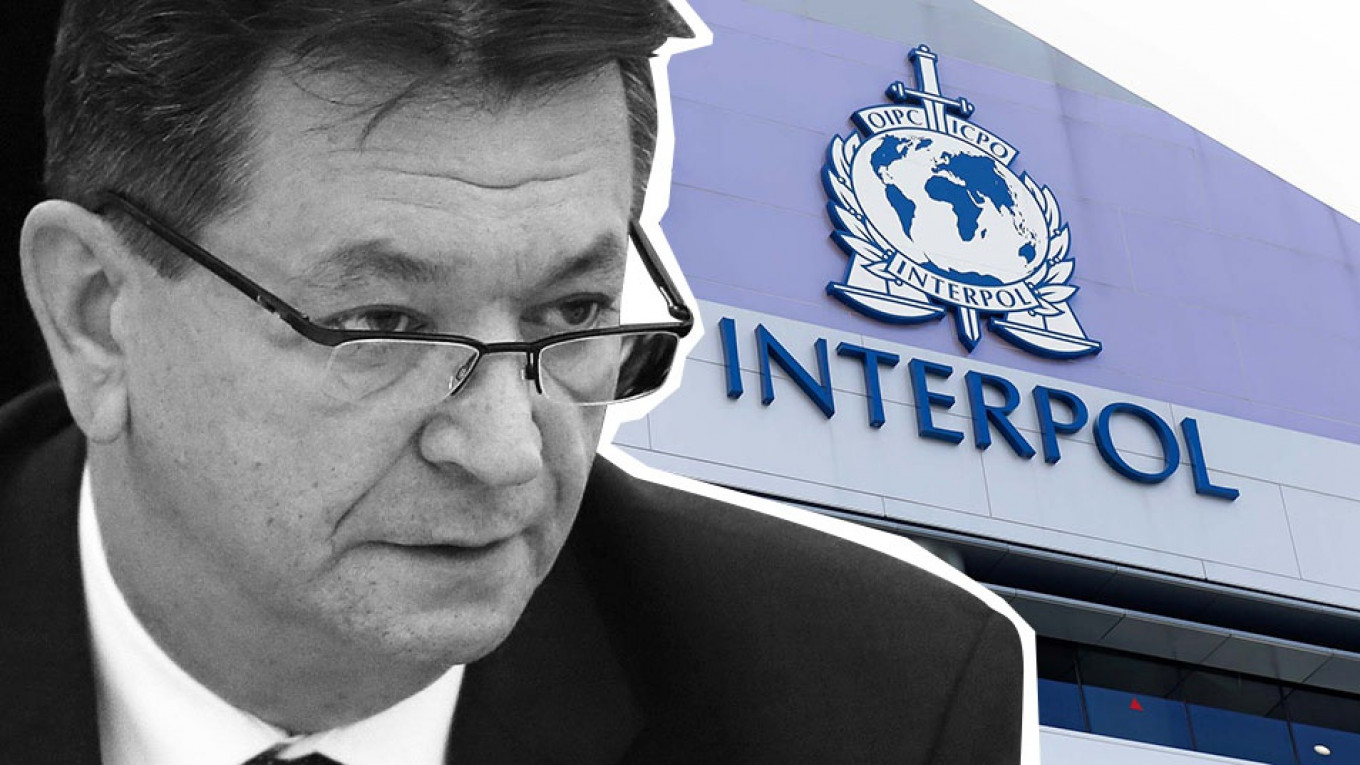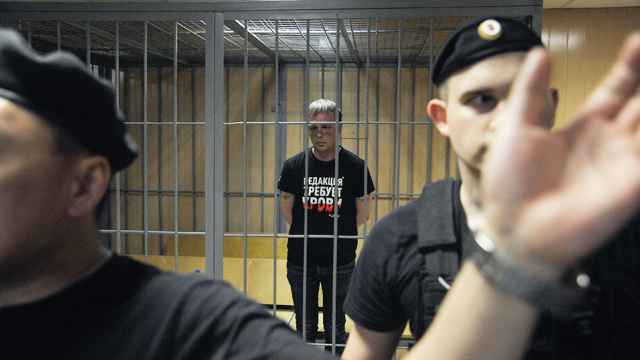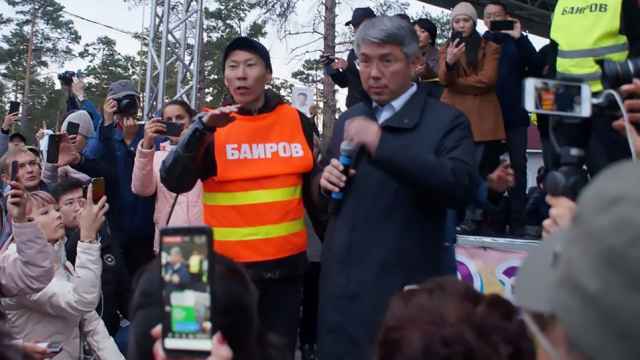On Wednesday, South Korea’s Kim Jong Yang was elected to be the new president of Interpol, much to the relief of the Western countries which had lobbied against the appointment of Russia’s Alexander Prokopchuk.
In the 1990s, Prokopchuk worked in the anti-corruption department of the tax police, an agency infamous for its institutionalized bribe-taking and embezzlement. He later moved into the Interior Ministry, rising to become a major general of police and head of its National Central Bureau (NCB) responsible for working with Interpol, before becoming Interpol's vice-chair for Europe in 2013.
As such, he has played a personal role in Russia's increasingly blatant use of Interpol and especially its red notice international arrest warrants, to persecute dissidents and inconveniences, including Estonian politician and former intelligence chief Eerik-Niiles Kross and financier Bill Browder.
It is no wonder that voices were raised in protest at his possible promotion in Europe, the U.S. and beyond. In Ukraine, there were even calls to withdraw from the agency (which unites almost every country in the world, absent North Korea). However, it is worth putting Interpol’s election in context.
Interpol is essentially an information brokerage. It has no powers of arrest, but largely simply shares best practice and, above all, whatever information national police forces want or can offer. As such, its head has an essentially administrative role.
While Moscow may have gained a little more sway when it tried to use the agency, Interpol is an essentially bureaucratic structure in which the director cannot — at least not without being very obvious — interfere in cases, accredit spies or hand Moscow its databases, as many feared.
After all, the previous director, Meng Hongwei, was Chinese, and Beijing is as assiduous as Moscow in trying to bend Interpol to its ends, especially against Uighur dissidents. Somehow the agency survived this, and it would have likely survived with a Russian in charge, too.
It is important to remember how little real power Interpol can wield. Even when politically motivated cases do lead to red notices being issued, in contradiction of its own charter, individual countries can ignore them, and they can be challenged in the courts. Indeed, the power of red notices depends on Interpol's credibility. The more it is abused, the less it will matter.
Perhaps this was the more serious danger. Interpol is bureaucratic, sometimes clumsy, and it can only request information, not demand it.
Police cooperation based on bilateral agreements, regional structures (such as Europol) and other bespoke arrangements tend to be much more effective and responsive. However, Interpol is the instrument of last resort, a third party intermediary which can bypass the roadblocks of geopolitics.
At present, for example, direct police cooperation between Russia and Britain on anything other than a few, specific issues such as child abuse, is virtually non-existent.
However, the NCB in London can send a request to Interpol, which will be sent to Moscow, and maybe the Russians will reply. Anything that damages Interpol — and Prokopchuk's election undoubtedly would have — also damages global law enforcement cooperation at a time when it is already hard for the cops to keep up with the robbers.
The Interpol General Assembly, which met in Dubai, makes decisions on a one-nation, one-vote basis. If Prokopchuk would have been elected, despite Western concerns, the result would have rightly been seized on by Moscow to demonstrate that it is not the isolated pariah the West often suggests.
It would have also underlined a trend of rising authoritarianism worldwide.
Countries such as Russia, China and Turkey may be the worst offenders in the abuse of policing for political purposes, but there are many others.
So perhaps the real danger was not that Prokopchuk would turn Interpol into the Kremlin's international attack dog, so much as that the agency itself would have drifted towards being everyone's. The logical outcome of that would be irrelevance or fragmentation, indicating a sad day for global law enforcement.
The election of Prokopchuk as the new director of Interpol wouldn’t have transformed the international law enforcement agency into an arm of the Russian security state. But the result would have questioned Western notions of the universality of its norms.
Prof. Mark Galeotti is a senior researcher at the Institute of International Relations Prague and Jean Monnet Fellow at the European University Institute and the author of “The Vory: Russia’s Super Mafia.” The views expressed in opinion pieces do not necessarily reflect the editorial position of The Moscow Times.
A Message from The Moscow Times:
Dear readers,
We are facing unprecedented challenges. Russia's Prosecutor General's Office has designated The Moscow Times as an "undesirable" organization, criminalizing our work and putting our staff at risk of prosecution. This follows our earlier unjust labeling as a "foreign agent."
These actions are direct attempts to silence independent journalism in Russia. The authorities claim our work "discredits the decisions of the Russian leadership." We see things differently: we strive to provide accurate, unbiased reporting on Russia.
We, the journalists of The Moscow Times, refuse to be silenced. But to continue our work, we need your help.
Your support, no matter how small, makes a world of difference. If you can, please support us monthly starting from just $2. It's quick to set up, and every contribution makes a significant impact.
By supporting The Moscow Times, you're defending open, independent journalism in the face of repression. Thank you for standing with us.
Remind me later.








